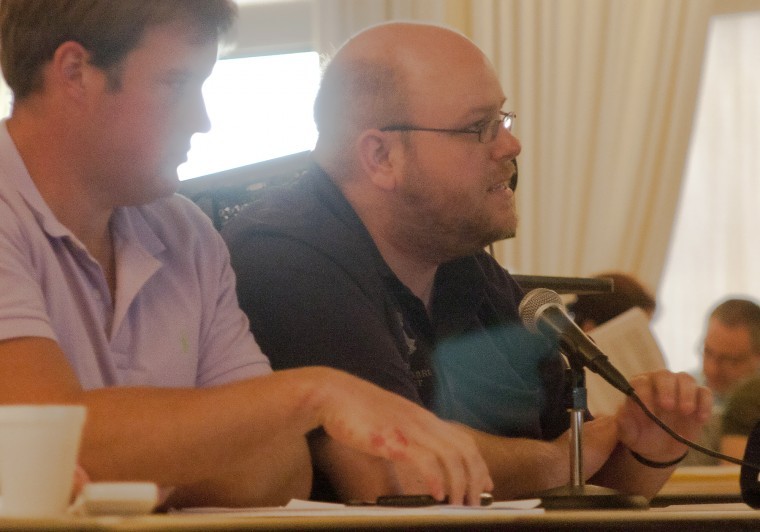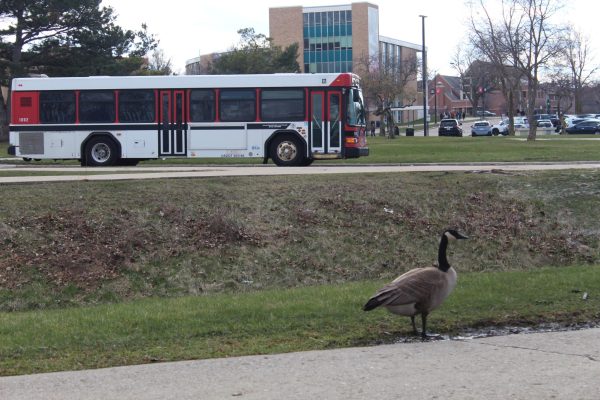Faculty Senate voices concerns about enrollment, faculty retirements
September 5, 2012
Concerns about student enrollment and faculty retirements were raised at the first Faculty Senate meeting of the fall semester Wednesday.
Faculty Senate President Alan Rosenbaum said he heard from faculty and people on campus “catastrophic statements” regarding enrollment. He said the official word from the university on enrollment is that they are not dramatically higher or lower.
“I’ve been told by the president that the characterization of this as ‘catastrophic’ is not accurate,” Rosenbaum said.
Until the university releases the official numbers, there is no confirmation what the total enrollment is, Rosenbaum said. The numbers are expected to be announced Monday. The number of honor students has doubled, but the number of transfer students is down at NIU and across the state, Rosenbaum said.
Another issue Rosenbaum brought to the Senate was the number of retirements at NIU. Rosenbaum said he does not know how many people have retired. No official number of retirements have been given yet. Rosenbaum said the administration has attributed this fact to the State Universities Retirement System not notifying NIU what the number is. The university has no way of tracking it other than contacting various departments, he said.
One important objective for the faculty was making sure they didn’t lose tenure track lines if they can’t replace retired faculty, Rosenbaum said. With university budget cuts, including a 6.14 percent of cuts to state appropriations, it was conceivable positions could be lost as result of retirements, Rosenbaum said. This is not, as far as he knew, a university policy.
“We need to be vigilant about the replacement of tenured faculty positions,” Rosenbaum said.
In his report to the senate, Student Association (SA) Speaker Austin Quick said he wanted to put pressure on both the Faculty Senate and University Council to implement a student grievance policy, but the SA plans on taking a different approach.
Quick also said he was pleased with the installation of signs that remind people of the state law that drivers must stop and yield to pedestrians crossing a roadway within a crosswalk.
“Obviously a campus like ours has a lot of main roads through it, and it’s an issue of safety,” Quick said.
Kelly Wesener Michael, acting vice president of student affairs and enrollment management, gave a presentation to the Senate on reducing the “bystander effect” on campus, where the more people there are witnessing an event, the less likely they are to intervene.
Plans are in motion to launch a social marketing campaign and host workshops to teach students how to help others with problems like suicide and alcohol.













